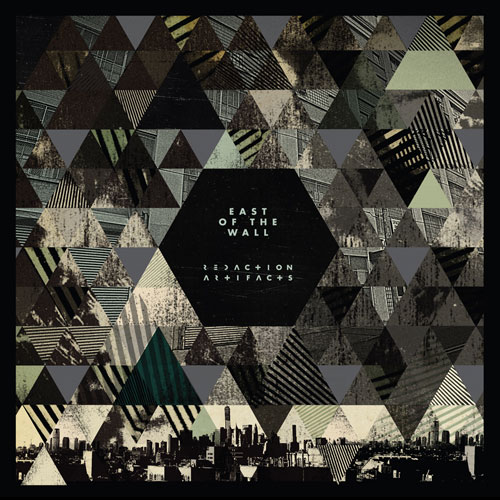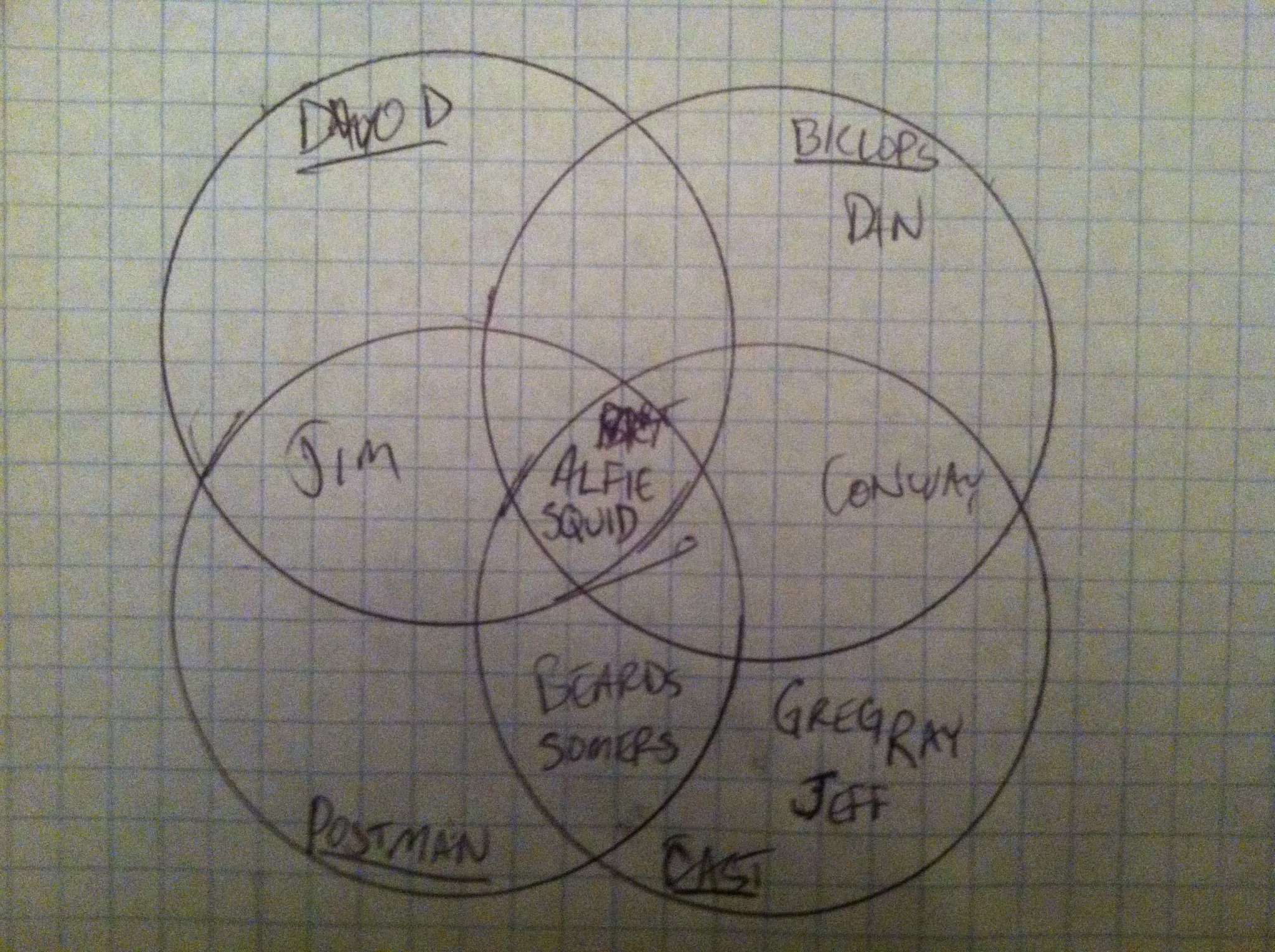
![]()
![]()
![]()
![]()
![]()
out of five
I'll admit it, I was nervous.
Even with a band so accustomed to lineup changes as East of the Wall, the departures of founding bassist Brett Bamberger and longtime guitarist and lead vocalist Kevin Conway, which left the group without any original members, could have easily proved fatal for the New Jersey metal collective.
Yes, the use of the noun "collective" to describe a band often smacks of pretension, especially when self-employed to mask internal instability, but at this point it's a perfectly appropriate description for the extended Postman Syndrome/Day Without Dawn/Biclops/East of the Wall family*, who have yet to release two full-length albums by the same lineup. Each incarnation has offered an at-least subtly different flavor without sacrificing innovation or quality. After Bamberger and Conway's departures, the band quickly once again reconfigured itself, moving guitarist Chris Alfano to bass, and adding touring guitarist Ray Suhy (formerly of The Baltic Sea and Colepitz) and Fake Gimms/Zombie Club America guitarist and singer Greg Kuter.
Not only has the band's revamped lineup managed to pick up the ball and run with it, the fruit of their efforts on Redaction Artifacts surpasses their previous album, 2011's The Apologist, considered by many, including the band's own PR, to be the "apex of [their] lumbering history."
Though released during the band's longest period to date of stable membership, that album had been written in large part before the merger of a then-instrumental East of the Wall and its sister project Biclops, and consequently suffered from a bit of a split personality, with the more developed, vocal-heavy prog epics of "Linear Failure" and "Whiskey Sipper" somewhat awkwardly bookended around a sludgy, pummeling, mostly instrumental midsection. Though Redaction Artifacts emerged out of a similar period of upheaval, it's managed to avoid much of its predecessor's incongruity. While incorporating elements of each of their previous releases—Apologist's directness, the dissonance and tricky time changes of 2010's Ressentiment, the innovative sonic textures of debut Farmer's Almanac—and some hints of earlier projects The Postman Syndrome and Day Without Dawn, Redaction Artifacts achieves a consistency that its two immediate predecessors lacked. Much of this is due to the renewed focus on melodic vocals throughout the record, which were used more sparsely through the previous two albums (and not at all on the instrumental first).
Kuter fits the band's chemistry quite well, his Thom Yorke-esque croon rising and falling to match the instrumental extremes beneath. Guitarist Matt Lupo's vocals are welcomely back in the mix, trading leads with Kuter after being inexplicably relegated to a few backing harmonies on The Apologist. Their interplay gives the group the best melodic vocal performance at least since Day Without Dawn and perhaps since Lupo's departure from The Postman Syndrome in 2004 kicked off the yearslong cascade of name, lineup, and stylistic changes. Alfano fills Bamberger's shoes well, his playing a bit less flashy but maintaining the groove and punchy, gritty tone that has been a trademark element of each project under the East of the Dawnclops Syndrome umbrella. His signature vocal growls accentuate the songs' angrier moments which alternate between walls of midtempo layered distortion and precise, mathy riffing. Seth Rheam's flowing, complex percussion is perhaps the most impressive it's ever been, remarkably technical but not gratuitous. And Suhy, well, shreds, effortlessly tearing through through sweep arpeggios with enough flash to knock you back in your seat but enough restraint to know when not to.
My fears that incorporating multiple new players into a framework that in the past has relied on so many moving parts would require some dumbing-down of the formula have been proven unfounded. In fact, the band seems to have rediscovered the inherent strengths of having three guitars, with each part clearly discernable while still woven into the others with meticulous attention to detail. It's a credit to each of the musicians' skill and discipline that the thing didn't emerge as either a busy, jumbled mess or a concession to laziness. The music is the most intricate and nuanced, and in some cases, fastest material the collective has written in years. It's both expertly performed and enhanced by the production, especially on the huge but natural drum tones.
The album also flows exceptionally well, opening with the short, ominous plucking of "Solving the Correspondence Problem," which builds into a blistering crescendo reminiscent of the Farmer's Almanac days before crashing into the familiar stomp of a polished "I'm Always Fighting Drago" (which was released earlier as a demo immediately after the announcement of the band's new lineup). The record continues through moments of unbridled aggression, shimmering clean passages, quirky funk-metal, and several stops in between without losing its momentum. After a brief acoustic break and reprisal of the album's opening motif, the finale, "Noir Filter," explodes in a series of crushing sludge riffs that wouldn't be out of place on the first Postman record. The song dips into a beautiful melodic section with flawlessly placed vocal harmonies before simmering back up to its straightforward anthemic close, complete with an *ahem* unapologetic dual-guitar lead and a grinding slowdown. After the near hour of stylistic twists and turns that lead up to this climax, this powerful simplicity provides a fitting end and gives the album a sense of completeness.
That's not to say the record never stumbles. Some of the vocal parts are curiously low in the mix, unfortunate given the otherwise stellar production and quality of the performances. There are also a few awkward transitions, and a few ideas introduced then left unexplored, particularly in the album's second-longest piece, the ambitious "Fractal Canopy." Thankfully, the individual sections that make up that track are inventive, well-crafted and, at their best, thrilling enough to hold the listener's attention on their own.
All minor gripes aside, Redaction Artifacts is arguably the strongest album released under the EotW moniker to date, an achievement even more impressive given its context. It's a challenging but ultimately rewarding listen that further proves the band's ability to not only survive change but harness it to their benefit.
Recommended tracks: Third-Person Camera, Noir Filter
*I've included this handy Venn diagram supplied by the band that explains their confounding lineage.


